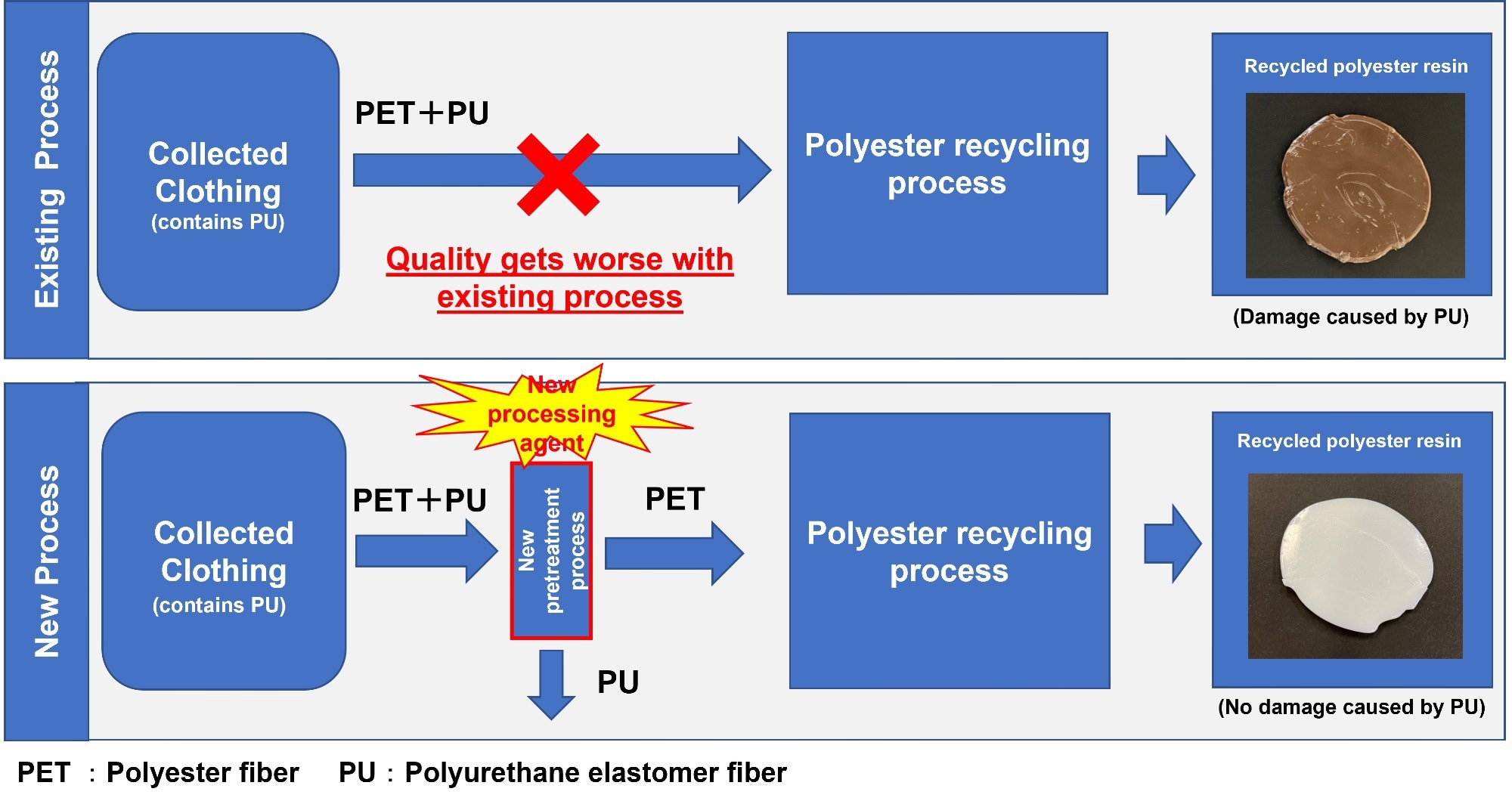Teijin Frontier Co., Ltd., the Teijin Group’s fibers and products converting company, announced today it has developed a new foreign material removal technology to eliminate polyurethane (PU) elastomer fiber from discarded polyester apparel.

Image Credit: Teijin Frontier Co., Ltd.
The technology features a new processing agent used during the pretreatment phase of the chemical recycling process, which helps improve the quality of the recycled polyester fiber that is derived from clothing containing PU elastomer fiber. In addition to removing the PU elastomer fiber, the new technology eliminates foreign materials such as dyes, and helps to omit the decolorization process of polyester fiber. Teijin Frontier has been conducting tests of this new technology since October 2022 for practical use.
Guided by THINK ECO® environmental strategy, Teijin Frontier is striving to achieve ambitious sustainability goals by developing advanced technologies that support recycling and enhance the value of environmentally responsible materials. As part of its initiative focused on polyester fiber, the company is working with the supply chain to establish a comprehensive ecosystem spanning apparel collection, sorting and recycling. Teijin Frontier is confident that its new foreign material removal method can help expand the scope of fiber-to-fiber recycling and contribute to a zero-waste society.
The new foreign material removal technology swells the PU elastomer fiber, breaks the chemical bonds and dissolves them with the new processing agent. Simultaneously, the agent eliminates foreign substances including dyes to optimize decolorization of the polyester fiber. For system cost control and environmental load reduction, the processing agent can be collected and reused. Recycled polyester materials generated by this method can be used in the existing chemical recycling process.
Stretchable polyester clothing that contains PU elastomer fiber is becoming popular as the demand in the industry for quick-drying, wrinkle-resistant, and comfortable-to-wear is increasing along with the trend to casual wear. However, as conventional chemical recycling technology for polyester assumes 100% polyester products, the quality of the recycled product deteriorates when PU elastomer fibers are included. Therefore, it is important to remove PU elastomer fiber from discarded polyester clothing.